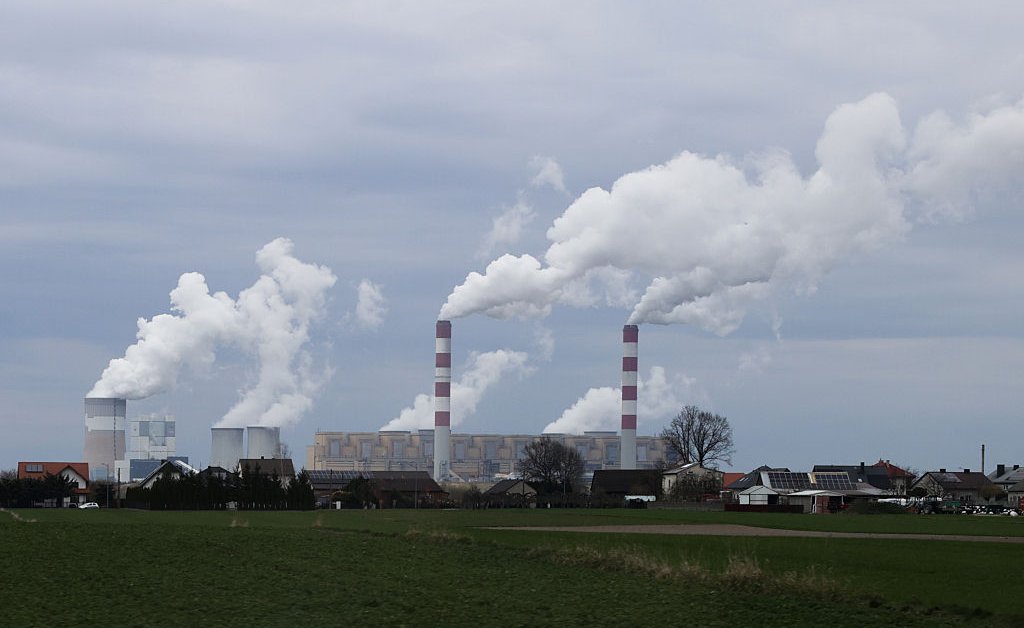The Link Between Air Pollution And Mortality: The Life-Saving Impact Of Emission Reductions

Welcome to your ultimate source for breaking news, trending updates, and in-depth stories from around the world. Whether it's politics, technology, entertainment, sports, or lifestyle, we bring you real-time updates that keep you informed and ahead of the curve.
Our team works tirelessly to ensure you never miss a moment. From the latest developments in global events to the most talked-about topics on social media, our news platform is designed to deliver accurate and timely information, all in one place.
Stay in the know and join thousands of readers who trust us for reliable, up-to-date content. Explore our expertly curated articles and dive deeper into the stories that matter to you. Visit Best Website now and be part of the conversation. Don't miss out on the headlines that shape our world!
Table of Contents
The Link Between Air Pollution and Mortality: The Life-Saving Impact of Emission Reductions
Air pollution is a silent killer, silently claiming millions of lives each year. The devastating link between poor air quality and increased mortality rates is no longer a matter of debate, but a stark reality demanding urgent action. This article explores the undeniable connection between air pollution and premature death, highlighting the life-saving potential of effective emission reduction strategies.
The Grim Statistics: A Global Health Crisis
The World Health Organization (WHO) estimates that around 7 million premature deaths annually are attributable to air pollution. This staggering figure underscores the urgency of addressing this global health crisis. These deaths are not simply abstract numbers; they represent families torn apart, communities devastated, and a significant burden on healthcare systems worldwide. The impact extends beyond simply respiratory illnesses; air pollution contributes to cardiovascular diseases, strokes, lung cancer, and even dementia.
Understanding the Deadly Mechanisms:
The harmful effects of air pollution are multifaceted. Exposure to pollutants like particulate matter (PM2.5), ozone, nitrogen dioxide, and sulfur dioxide triggers inflammation and oxidative stress within the body.
- Particulate Matter (PM2.5): These tiny particles penetrate deep into the lungs and bloodstream, causing serious damage to vital organs.
- Ozone: A major component of smog, ozone irritates the respiratory system, leading to coughing, wheezing, and reduced lung function.
- Nitrogen Dioxide (NO2): Primarily from vehicle emissions, NO2 contributes to respiratory infections and exacerbates existing lung conditions like asthma.
- Sulfur Dioxide (SO2): Released from burning fossil fuels, SO2 can lead to respiratory problems and cardiovascular issues.
These pollutants don't just affect the vulnerable – elderly, children, and those with pre-existing conditions. The impact is widespread, affecting individuals across all demographics and socioeconomic backgrounds.
The Promise of Emission Reductions: Saving Lives Through Action
While the problem is significant, the solution is within our grasp. Implementing effective emission reduction strategies can dramatically reduce air pollution levels and save countless lives. These strategies include:
- Transitioning to Renewable Energy: Shifting away from fossil fuels towards renewable sources like solar and wind power is crucial in reducing air pollution from electricity generation. [Link to article about renewable energy transition]
- Improving Vehicle Emission Standards: Stricter regulations on vehicle emissions, coupled with promoting electric vehicles and public transport, can significantly reduce air pollution in urban areas. [Link to article on electric vehicle adoption]
- Investing in Green Infrastructure: Planting trees, creating green spaces, and improving urban planning can help absorb pollutants and improve air quality.
- Industrial Emission Controls: Implementing and enforcing stricter regulations on industrial emissions is critical to reducing pollution from factories and power plants.
Success Stories and the Path Forward:
Numerous cities around the world have demonstrated the positive impact of emission reduction strategies. Cities like London and Los Angeles, once notorious for their smog, have made significant strides in improving air quality through comprehensive pollution control measures. These examples prove that substantial improvements are achievable, leading to tangible benefits in public health and economic productivity.
Conclusion: A Call to Action
The link between air pollution and mortality is irrefutable. The human cost is staggering, but the potential for positive change is equally significant. By investing in cleaner energy, implementing stricter emission standards, and promoting sustainable practices, we can dramatically reduce air pollution, save lives, and create healthier communities for generations to come. The time for action is now. We must work together to breathe cleaner air and build a healthier future.

Thank you for visiting our website, your trusted source for the latest updates and in-depth coverage on The Link Between Air Pollution And Mortality: The Life-Saving Impact Of Emission Reductions. We're committed to keeping you informed with timely and accurate information to meet your curiosity and needs.
If you have any questions, suggestions, or feedback, we'd love to hear from you. Your insights are valuable to us and help us improve to serve you better. Feel free to reach out through our contact page.
Don't forget to bookmark our website and check back regularly for the latest headlines and trending topics. See you next time, and thank you for being part of our growing community!
Featured Posts
-
 Nyt Strands Today Solutions And Hints For Puzzle 431 May 8 2025
May 10, 2025
Nyt Strands Today Solutions And Hints For Puzzle 431 May 8 2025
May 10, 2025 -
 Rome Open 2024 Jabeur Vs Kvitova Where To Watch Preview And Betting Tips
May 10, 2025
Rome Open 2024 Jabeur Vs Kvitova Where To Watch Preview And Betting Tips
May 10, 2025 -
 Celine Songs Past Lives A Filmmakers Journey From Dating Apps To Cinematic Success
May 10, 2025
Celine Songs Past Lives A Filmmakers Journey From Dating Apps To Cinematic Success
May 10, 2025 -
 Wta Italian Open 2025 Jasmine Paolini Vs Ons Jabeur Match Preview
May 10, 2025
Wta Italian Open 2025 Jasmine Paolini Vs Ons Jabeur Match Preview
May 10, 2025 -
 Bournemouth Vs Aston Villa Premier League Match Preview Predictions And Betting Odds
May 10, 2025
Bournemouth Vs Aston Villa Premier League Match Preview Predictions And Betting Odds
May 10, 2025
